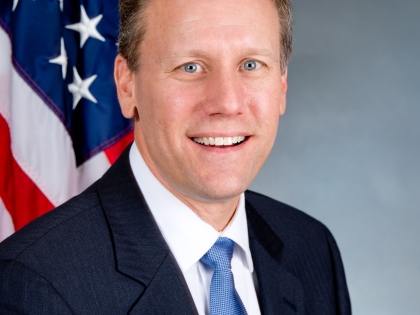
Senate Sets Agenda For Energy Policy
The recent fuel crisis has turned our collective focus to an issue I have been concerned about for some time: the cost of energy. I have long believed that any serious approach to energy must work simultaneously to reduce costs today and reduce dependency on foreign oil tomorrow.
I am glad to report that this past week the Senate passed several important pieces of legislation that, if implemented, will have short-term benefits by putting dollars in peoples' pockets now and long-term gains by putting a better energy plan in place for the future.
To immediately help the motorists, businesses and farmers that depend on affordable gas from day to day, the Senate passed a cap on the state tax on the sale of gasoline. If passed by the Assembly and signed into law this would mean motorists will pay sales tax only on the first two dollars per gallon. Though this is just pennies on the dollar, I supported this cap because I believe we need to do everything in our power to reduce high gas prices.
We also passed legislation to establish a "Senior Heat" program to provide assistance to seniors struggling to pay increased home heating costs this winter. Under this program, Seniors currently eligible for the enhanced STAR program will receive a $200 rebate check to help defray heating costs. This plan would help an estimated 640,000 seniors statewide.
While these two pieces of legislation could mean immediate relief for energy expenses, that does little to address the long term challenge of energy independence. The same can be said of the Power for Jobs and EDP programs, which bring low cost energy to manufacturers. We need these programs to help with costs today, but the real solution lies in what we do tomorrow.
To that end, I believe we must do everything possible to encourage the production and use of alternative energy. In the special session the Senate passed several bills to do just that. The package of legislation creates a tax credit encouraging the use of commercial fuel cells, reinstates the tax credit for alternative fuel vehicles, and expands tax incentives on energy smart appliances. The Senate also passed a tax credit to encourage the production and use of biofuels.
While we took important first steps this past week, there is much more to be done. For instance, I believe the state should provide tax credits to homeowners who heat their homes using a blend of biodiesel and fuel oil. The Senate should also revisit a bill I sponsored last session encouraging municipalities to invest in renewable energy sources, like biofuels.
In addition to being sound public policy, investment in so-called smart energy has the potential to become a windfall for local farmers who help produce biodiesel, biomass and biogas. This investment in energy will also be an investment in our local economy. With academic resources like SUNY ESF and budding alternative energy businesses like Northeast Biofuels, Central New York is well positioned to lead the state as we develop our alternative energy industry.
There is much to be done as we grapple with high energy costs today and an uncertain energy future. I am glad to do my part as your elected representative in the Senate. It is long past the time to put a stop to skyrocketing fuel costs and to develop a real plan for energy independence.